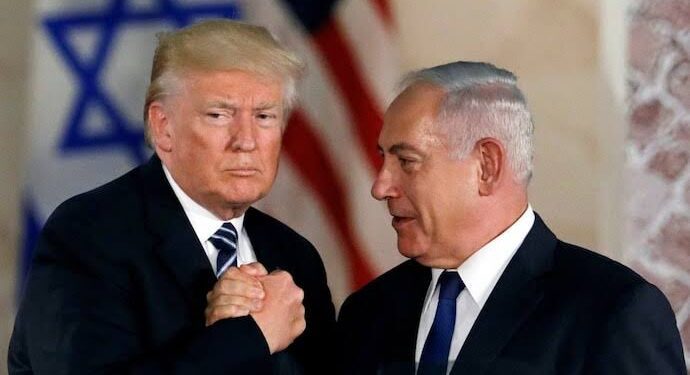In a significant diplomatic maneuver, Israel is moving swiftly to advance a potential ceasefire deal in Lebanon, viewed as a strategic offering to U.S. President-elect Donald Trump. Sources from within Israeli government circles reported that Ron Dermer, the Minister of Strategic Affairs and a close aide to Prime Minister Benjamin Netanyahu, visited Mar-a-Lago to outline this proposal directly to Trump and his son-in-law, Jared Kushner. This visit marks a significant pivot as Trump prepares to take office, showing how rapidly political focus in Washington has shifted following his electoral victory on November 5, 2024.
Diplomatic Talks in Mar-a-Lago and Washington
Dermer’s discussions were part of a broader U.S. tour that included meetings with officials in the current Biden administration. The Washington Post highlighted that Dermer’s engagements in the U.S. underscore Netanyahu’s readiness to align closely with Trump’s foreign policy. Trump, during recent phone calls with Netanyahu, emphasized his desire to see an end to the conflicts in the Middle East but maintained support for Israel’s right to act against threats like Hezbollah and Hamas.
The plan in question seeks to establish a ceasefire in Lebanon, where tensions have been high following Hezbollah’s use of southern Lebanon as a launchpad for rocket attacks on Israel since October 2023. The conflict has led to significant casualties and displacement, with nearly 900,000 people displaced in Lebanon and over 3,300 dead, including hundreds of women and children, according to the Lebanese Health Ministry. Israel, too, has faced losses, with 45 civilians and 31 soldiers killed.
Key Details of the Ceasefire Proposal
The ceasefire proposal reportedly entails Hezbollah’s withdrawal north of the Litani River, a boundary marking the edge of the U.N.-monitored buffer zone established after the 2006 war. An initial 60-day period would see the Lebanese military taking control of the border region, supervised by the U.S. and Britain. While this arrangement aims to curb violence and stabilize the area, officials note that challenges remain. Notably, Hezbollah’s stance, as conveyed by sources close to the group, is that progress can only be made if Israel ceases all military operations within Lebanese territory.
Lebanese parliamentary speaker and Hezbollah ally Nabih Berri echoed this sentiment, stating firmly, “Is there any sane person who believes that we will agree to a settlement or a solution that serves Israel’s interests at the expense of Lebanon’s interests and sovereignty?”
Complications and Potential Hurdles
Despite potential concessions, critics warn that Netanyahu’s motives may be tied to his political survival amid domestic pressures. Frank Lowenstein, a former U.S. special envoy, noted that while Netanyahu might seek a temporary arrangement with President Biden still in office, any long-term credit for the deal would likely be reserved for Trump.
Complicating the landscape further is Russia’s involvement. Reports indicate that Israel is counting on Russia to block the rearming of Hezbollah via Syria, Iran’s main supply route to the group. This step highlights a delicate balancing act: while Moscow’s cooperation could bolster the ceasefire’s feasibility, its alignment with Iran and presence in Syria add layers of unpredictability.
A High-Stakes Diplomatic Move: Will the Ceasefire Hold?
As Israel prepares for potential military escalation, the focus remains on whether the ceasefire proposal is a genuine peace initiative or a strategic calculation designed for political leverage. Will the pressures of military readiness and regional instability impact the outcome of these diplomatic efforts?
Is Israel’s Ceasefire Plan About Peace or Political Strategy?
Related Stories:
Hezbollah says Israeli army ‘unable’ to occupy any Lebanese villages
Israel Destroys Ottoman-Era Building Near Baalbek Ruins in Lebanon
US tells Americans in Lebanon to ‘depart now’ as Hezbollah-Israel war intensifies
















